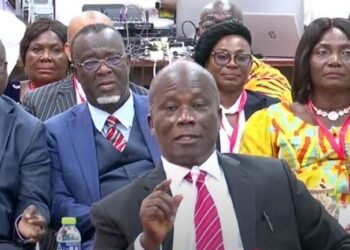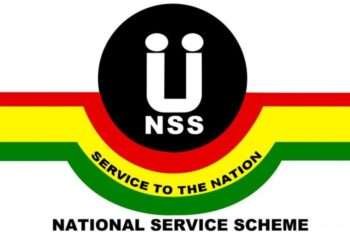Executive Secretary of the Chamber of Petroleum Consumers (COPEC), Duncan Amoah, has disclosed that the removal of the Price Stabilization and Recovery Levies (PSRL) will not automatically lead to a reduction in fuel prices at the pumps.
Mr Amoah advised consumers of fuel products to minimize their expectations of a possible reduction in fuel prices at the pumps from Tuesday November 2, 2021.
He explained that if the public wakes up “with an expectation of going to the pumps to see a reduction of 15 pesewas” he is not confident it will be “happening tomorrow”.
Mr Amoah believes that there is more likely to be an “upward adjustment due to the variant of some 20 pesewas that have been increased”. He explained that considering the prices of Brent Crude and the depreciation of the cedi, it will rather increase fuel prices in spite of the removal of the levies.
“Let us minimize that expectation because I am speaking from numbers coming out from the very people who are importing fuel. Currently, there’s rather a variant of almost 20 pesewas that is from the international market price benchmark differences alone”.
Mr Duncan Amoah
The COPEC Executive Director noted that the current happening is a function of “international market prices”, as it has “gone up”. This, he explained, could prevent a reduction in fuel prices.
“Again, the cedi is also still depreciating within the same period. As I speak with you, some importers are actually buying the dollar at six cedis 35 pesewas”.
Mr Duncan Amoah
Removal of Price Stabilisation and Recovery Levies
The National Petroleum Authority (NPA), on October 11, 2021, approved the removal of the Price Stabilisation and Recovery Levies (PRSL) on petrol, diesel, and LPG.
Contained in a statement issued by the Authority’s Corporate Affairs Department, it revealed that President Akufo-Addo, has “granted approval to zero the Price Stabilisation and Recovery Levies on petrol, diesel, and LPG for a period of two months”.
The NPA vowed to work with the Ministries of Finance and Energy to hasten the legislative processes to give immediate effect to the directive from the President.
According to the statement, it followed advice from the NPA to the Energy Minister for government’s intervention to mitigate the impact of rising prices of petroleum products on the world market on consumers.
The statement revealed that prices of crude oil and refined petroleum products have seen “sharp increases on the world market”. This, it explained, was due to a rise in demand for oil globally without a corresponding increase in supply particularly from the Organisation of Petroleum Exporting Countries (OPEC) and its allies.
The purpose of the Price Stabilisation and Recovery Levy, per NPA’s statement is to stabilise prices for consumers and “pay for the subsidies on Premix Fuel and Residual Fuel Oil (RFO)”.
Prior to NPA’s statement, COPEC had issued a statement which indicated that apart from the international market prices having an impact on petroleum products, the local currency has also witnessed a further depreciation in recent times as compared to other trading currencies.
Read Also: Kidi’s ‘Touch It’ is the most-streamed song on Spotify




















